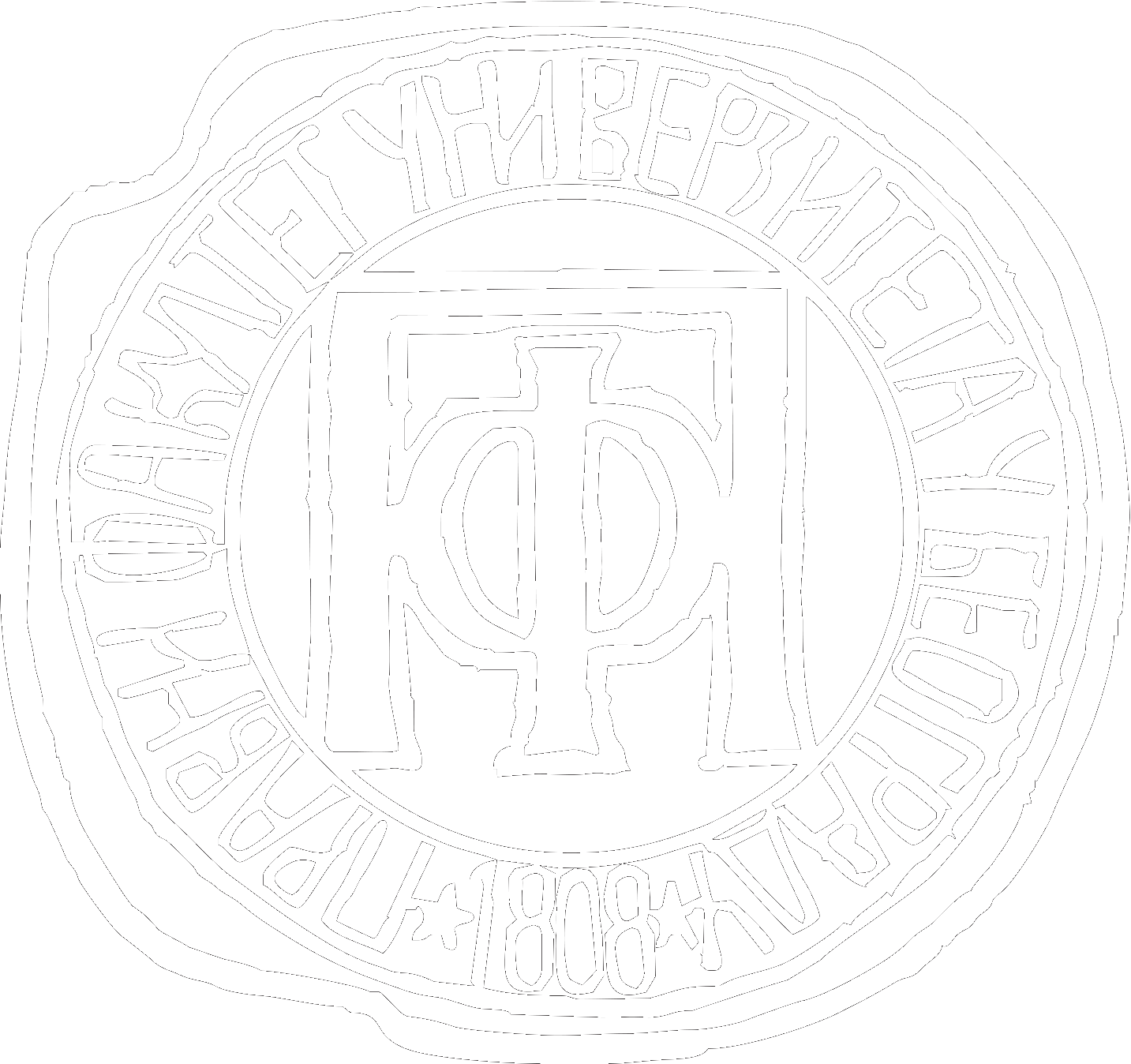Економска теорија генералне превенције
Основна питања
Кључне речи:
генерална превенција; очекивана вредност казне; новчана казна; ризик; трансфер благостањаСажетак
Циљ рада је да методологијом економске науке, а на основу досадашњих доприноса у области економске теорије криминала, размотри основна теоријска питања генералне превенције. Анализа је усредсређена на теоријска питања оптималног нивоа генералне превенције и оптималне композиције фактора генералне превенције – запрећене казне и вероватноће њене примене. Оптимални ниво генералне превенције увек је, услед постојања њених трошкова, нижи од максималног. Будући да се разликују функције трошкова вероватноће примене казне и трошкова запрећене казне, тако да су већи трошкови повећања вероватноће примене казне, оптимална комбинација фактора генералне превенције заснива се на максималном износу запрећене новчане казне. Новчана казна је економски најефикаснија врста казне, будући да су њени друштвени трошкови занемарљиви. Та врста казне представља трансфер благостања: умањење благостања кажњеника компензовано је увећањем благостања корисника буџетских средстава, односно пореских обвезника. Максималан износ новчане казне је индивидуализован и зависи од укупног богатства преступника. Разматрања показују да постоје теоријска и практична ограничења у погледу примене овако дефинисане оптималне казне. Стога се и приступа модификацији наведеног оптимума, имајући у виду проблем маргиналне казне, повезаност висине запрећене казне и вероватноће њене примене, ситуацију недовољног износа богатства преступника у односу на тежину кривичног дела које је учинио, као и напуштање претпоставке о неутралности појединаца ка ризику. Показало се, уколико је коефицијент еластичности очекиване вредности казне у односу на запрећену казну већи од јединице и уколико потенцијални преступници имају аверзију према ризику, да је оптимални износ запрећене казне мањи од максималног.
Downloads
Референце
Andreoni, J. 1991. "Reasonable Doubt and the Optimal Magnitude of Fines: Should the Penalty Fit the Crime." RAND Journal of Economics 22. https://doi.org/10.2307/2601054
Applebaum, A. 2003. GULAG: A History. London: Allen Lane, The Penguin Press.
Becker, G. S. 1968. "Crime and Punishment: An Economic Approach." Journal of Political Economy 76. https://doi.org/10.1086/259394
D’Antoni, M., and Galbiati, R. 2007. "A Signaling Theory of Nonmonetary Sanctions." International Review of Law and Economics 27. https://doi.org/10.1016/j.irle.2007.06.008
Dittmann, I. 2006. "The Optimal Use of Fines and Imprisonment if Government Don’t Maximize Welfare." Journal of Public Economic Theory 8. https://doi.org/10.1111/j.1467-9779.2006.00283.x
Garoupa, N. 1997. "The Theory of Optimal Law Enforcement." Journal of Economic Surveys 11. https://doi.org/10.1111/1467-6419.00034
Garoupa, N., and Klerman, D. 2002. "Optimal Law Enforcement with a Rent-Seeking Government." American Law and Economics Review 4. https://doi.org/10.1093/aler/4.1.116
Feess, E., and Wohlschlegel, A. 2009. "Why Higher Punishment May Reduce Deterrence." Economics Letters 104. https://doi.org/10.1016/j.econlet.2009.04.003
Friedman, D. 1999. "Why Not Hang Them All: The Virtues of Inefficient Punishment." Journal of Political Economy 107. https://doi.org/10.1086/250110
Gneezy, U., and Rustichini, A. 2000. "A Fine Is a Price." Journal of Legal Studies 29. https://doi.org/10.1086/468061
Henderson, J., and Palmer, J. P. 2002. "Does More Deterrence Require More Punishment? Or Should the Punishment Fit the Crime." European Journal of Law and Economics 13.
Iyenger, R. 2009. "Does the Certainty of Arrest Reduce Domestic Violence? Evidence from Mandatory and Recommended Arrest Laws." Journal of Public Economics 93. https://doi.org/10.1016/j.jpubeco.2008.09.006
Kaplow, L. 1990. "A Note on the Optimal Use of Nonmonetary Sanctions." Journal of Public Economics 42. https://doi.org/10.1016/0047-2727(90)90015-A
Lando, H. 2009. "Prevention of Crime and the Optimal Standard of Proof in Criminal Law." Review of Law and Economics 5. https://doi.org/10.2202/1555-5879.1237
Lewin, J. L., and Trumbull, W. N. 1970. "The Social Value of Crime." International Review of Law and Economics 10. https://doi.org/10.1016/0144-8188(90)90014-K
Lin, M. J. 2009. "More Police, Less Crime: Evidence from US State Data." International Review of Law and Economics 29. https://doi.org/10.1016/j.irle.2008.12.003
Nicholson, W. 1995. Microeconomic Theory: Basic Principles and Extensions. Fort Worth and Orlando: The Dryden Press and Harcourt Brace & Company.
Ognedal, T. 2005. "Should the Standard of Proof Be Lowered to Reduce Crime?" International Review of Law and Economics 25. https://doi.org/10.1016/j.irle.2005.05.002
Polinsky, A. M., and Shavell, S. 1979. "The Optimal Tradeoff between the Probability and Magnitude of Fines." American Economic Review 69.
Polinsky, A. M., and Shavell, S. 1984. "The Optimal Use of Fines and Imprisonment." Journal of Public Economics 24. https://doi.org/10.1016/0047-2727(84)90006-9
Polinsky, A. M., and Shavell, S. 2000. "The Economic Theory of Public Enforcement of Law." Journal of Economic Literature 38. https://doi.org/10.3386/w6993
Shavell, S. 2004. Foundations of the Economic Analysis of Law. Cambridge, Mass.: The Belknap Press of Harvard University Press. https://doi.org/10.4159/9780674043497
Stigler, G. J. 1970. "The Optimum Enforcement of Law." Journal of Political Economy 78. https://doi.org/10.1086/259646
Stojanović, Z. 2007. Krivično pravo: opšti deo. XIV ed. Belgrade: Pravna knjiga.
Tabbach, A. 2009. "Does a Rise in Maximal Fines Increase or Decrease the Optimal Level of Deterrence?" Review of Law and Economics 5. https://doi.org/10.2202/1555-5879.1245
Wickelgren, A. L. 2003. "Justifying Imprisonment: On the Optimality of Excessively Costly Punishment." American Law and Economics Review 5. https://doi.org/10.1093/aler/ahg018
Wilde, L. L. 1992. "Criminal Choice, Nonmonetary Sanctions, and Marginal Deterrence: A Normative Analysis." International Review of Law and Economics 12. https://doi.org/10.1016/0144-8188(92)90012-G

Downloads
Објављено
Како цитирати
Bрој часописа
Секција
Лиценца
Сва права задржана (c) 2010 Борис Беговић

Овај рад је под Creative Commons Aуторство 4.0 Интернационална лиценца.
Аутори задржавају ауторска права и дају часопису право првог публиковања рада, што омогућава другима да деле рад уз признање ауторства и изворног објављивања у овом часопису.










